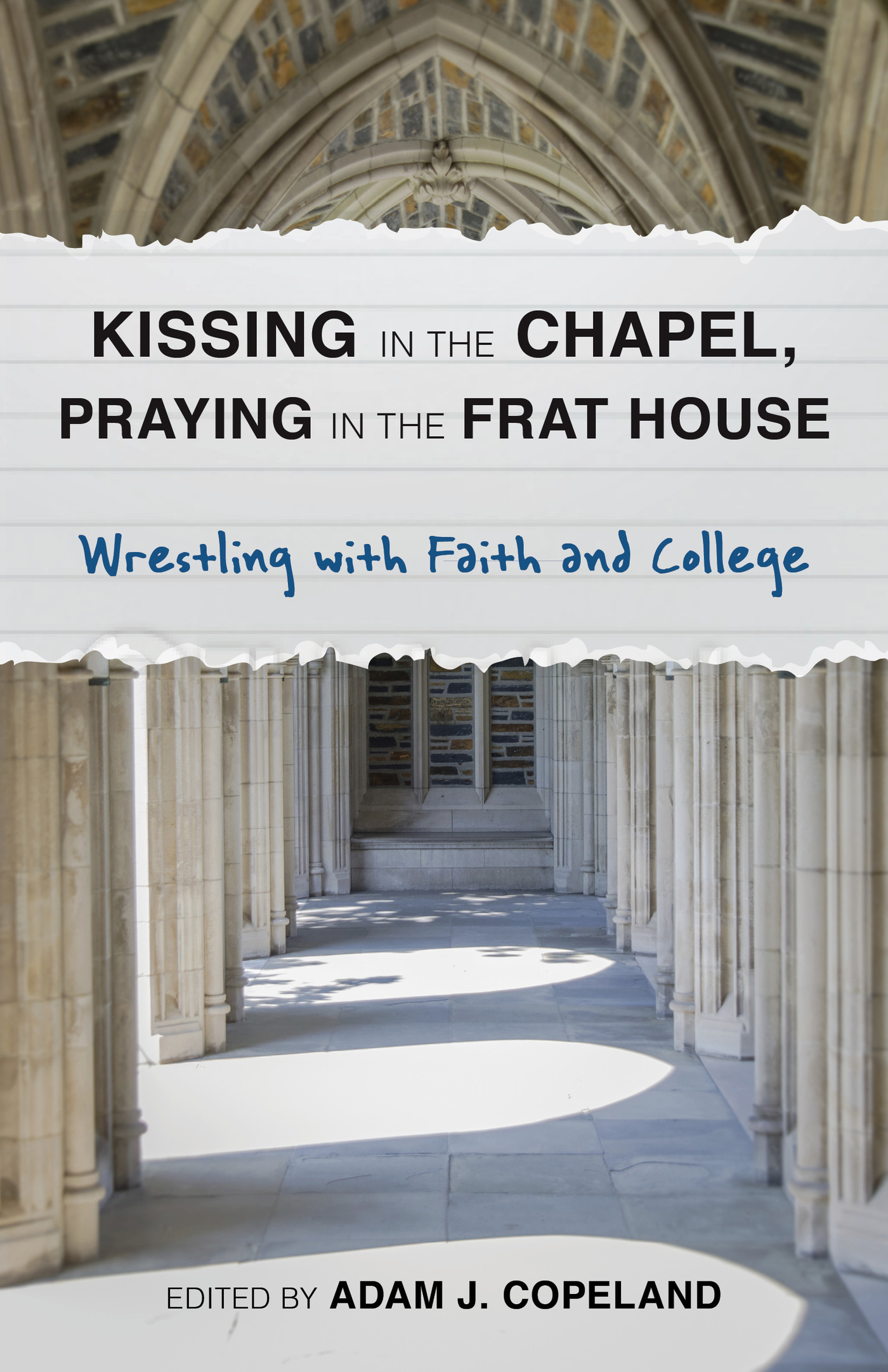Kissing in the Chapel,
Praying in the Frat House
Kissing in the Chapel,
Praying in the Frat House
Wrestling with Faith and College
Edited by Adam J. Copeland

An Alban Institute Book
ROWMAN & LITTLEFIELD
Lanham Boulder New York London

Published by Rowman & Littlefield
A wholly owned subsidiary of The Rowman & Littlefield Publishing Group, Inc.
4501 Forbes Boulevard, Suite 200, Lanham, Maryland 20706
www.rowman.com
16 Carlisle Street, London W1D 3BT, United Kingdom
Copyright 2015 by Rowman & Littlefield
All rights reserved. No part of this book may be reproduced in any form or by any electronic or mechanical means, including information storage and retrieval systems, without written permission from the publisher, except by a reviewer who may quote passages in a review.
British Library Cataloguing in Publication Information Available
Library of Congress Cataloging-in-Publication Data
Kissing in the chapel, praying in the frat house / [edited by] Adam Copeland.
pages cm
ISBN 978-1-56699-765-2 (cloth : alk. paper) -- ISBN 978-1-56699-730-0 (pbk. : alk. paper) -- ISBN 978-1-56699-731-7 (electronic)
1. Young adults--Religious life. 2. Christian life. 3. Conduct of life. 4. Christianity and culture. I. Copeland, Adam, 1983- editor.
BV4529.2.K5475 2014
248.8'34--dc23
2014028357
 TM The paper used in this publication meets the minimum requirements of American National Standard for Information Sciences Permanence of Paper for Printed Library Materials, ANSI/NISO Z39.48-1992.
TM The paper used in this publication meets the minimum requirements of American National Standard for Information Sciences Permanence of Paper for Printed Library Materials, ANSI/NISO Z39.48-1992.
Printed in the United States of America
To M,
my college sweetheart
Introduction
Goodbye. I must have said bye to my parents hundreds of times before, but never had I done so with so much emotion (not counting a problematic separation anxiety stage in preschool). There we stood on the front lawn of my first college dormitory about to say our parting words. Within minutes my parents would be leaving, driving their rental car back to the airport to fly the fifteen hundred miles home. I would not be joining them. I was starting college.
What did my parentswhat did Iimagine would take place over the next four years as they left their firstborn son in the care of college administrators they did not know, roommates they did not trust, and parties they did not sanction? What experiences would shake me to my core? What tears would I cry? What subjects would I study? What friends would I make? What decisions would I regret?
A few days after that goodbye, I attended Sunday morning worship on campus with several new friends from my dorm. At my small, liberal arts, church-related college, worship attendance wasnt quite expected, but it was certainly accepted. The overall culture of the college encouraged faith exploration, and the campus congregation was no exception. I did not know it then, but I would end up attending worship more often than not throughout my college career. Along with late-night pizza, gallons of coffee, and my fair share of cheap beer, Sunday worship and daily chapel services became part of my weekly college diet.
The student congregation, and the leadership of the college pastors, choirs, and organist, nourished my faith on Sunday mornings, but that hour functioned as one small piece of my larger college faith puzzle. I can name religion courses, off-campus study, creative writing courses, three choirs, conferences, classroom assignments, spring break trips, and dozens of relationships that were much more instrumental in my faith formation. But worship, nevertheless, marked many Sundays.
It is not coincidence that both the journey through college and the journey of Christian faith recognize formal stages of progress. In college, one begins as a freshman (or, increasingly, first-year) often without a major and moves through the ranks of course credits, degree requirements, capstone experiences, and eventually a formal graduation. In many Christian churches, faith steps marked include baptism, receiving first Communion, confirmation, and eventually becoming a full adult member of a congregation. Death, sometimes called the completion of baptism, eventually follows. In the winding journey of discovery, self-understanding, and formal stages, faith and college share a kinship. For many people, one cannot truly progress without the other.
The essays within the pages of Kissing in the Chapel, Praying in the Frat House: Wrestling with Faith and College speak to the many connections of faith and college. It is true that in most colleges and universities students can manage, if they wish, to leave their faith unexamined. In fact, some professors discourage all faith-related discussions in the classroomtalk of faith can get emotional after all, not to mention political. Even at private, faith-related schools, students can stoop to boilerplate answers or accurate scholarly analysis without examining their own faith claims. The writers in this collection, however, have refused to uphold the false dichotomy between faith and learning. Indeed, their reflections provide insight into how faith can deepenand complicateevery aspect of ones college experience.
Commentators have already spilled much ink on the millennial generation, those born between 1980 and 2000, approximately. Were told todays twentysomethings, as well as those of us in our early thirties, are lazier than previous generations. We marry later, we are less likely to be affiliated with traditional religious beliefs, and more than a few move back into our parents basements after college. While generational theory can be helpful for some big-picture, wide-ranging descriptions, it breaks down when it comes to individuals. Thats where stories come in. Personal narratives can break through the broad brushstrokes of generational theory and describe real, unique, individual experiences in all their troubled beauty. This book came about because I was tired of hearing my generation described by outside experts in ways that sounded vaguely familiar, but lacked the passion and particularity of individual stories so important for true understanding.
To find the twenty-one fine contributors included in these pages, I took a multilayered approach to solicit submissions from around the nation (and world, as it turned out). Beginning the summer of 2012, I sought essays written by those in, or very near, their twenties. A call for submissions hosted on my personal website (adamjcopeland.com) was shared widely on social networks and garnered thousands of hits. Next, with the help of R. Austin Nelson, a fine student assistant to whom Im most grateful, I contacted campus pastors, English and religion departments, and university faith networks to help identify gifted writers with a compelling faith and college story to tell. In all, I received more than fifty submissions from twentysomethings in the United States, Britain, and Canada. As the editing process continued, I commonly heard from the writers that they appreciated the process of writing and reflecting on their stories, regardless of whether or not their essay was selected for inclusion in the collection. The process of wrestling with faith and college, embracing the mystery and sharing the meaning, continues well beyond graduation.
Next page
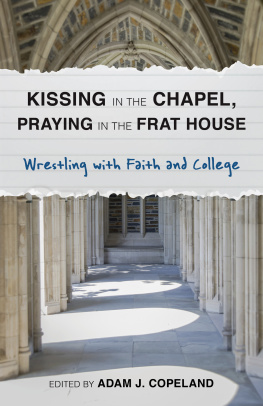


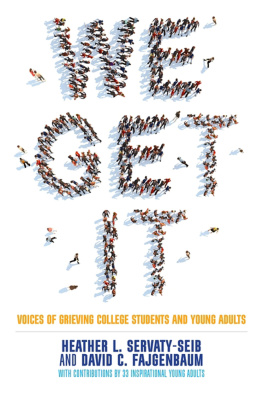
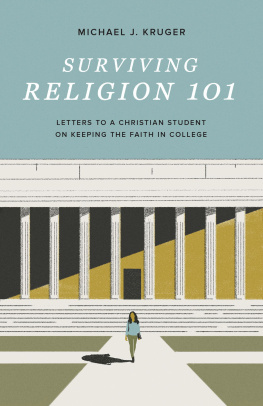

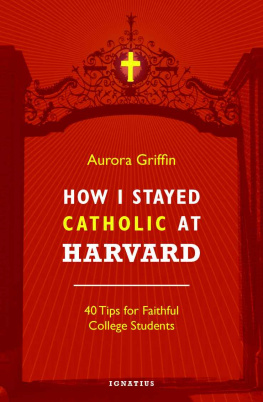
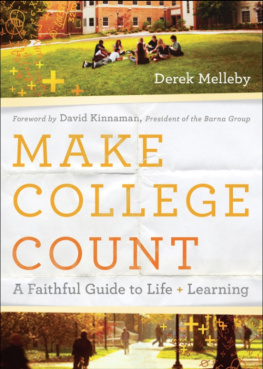
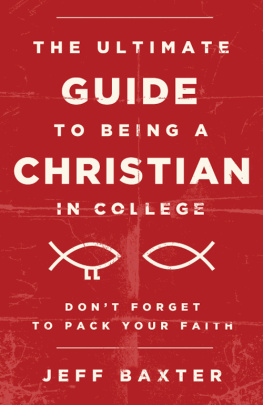


 TM The paper used in this publication meets the minimum requirements of American National Standard for Information Sciences Permanence of Paper for Printed Library Materials, ANSI/NISO Z39.48-1992.
TM The paper used in this publication meets the minimum requirements of American National Standard for Information Sciences Permanence of Paper for Printed Library Materials, ANSI/NISO Z39.48-1992.